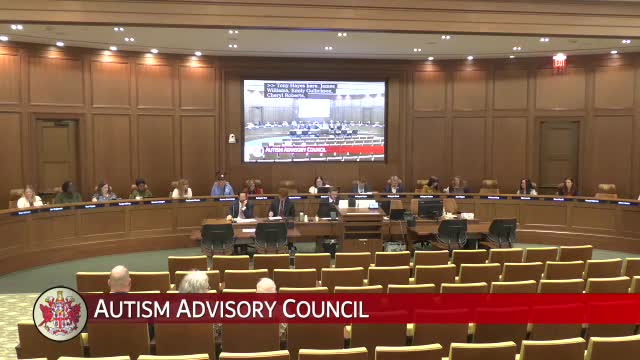Virginia DMV launches free "Blue Envelope" to help drivers with autism during traffic stops
Get AI-powered insights, summaries, and transcripts
Subscribe
Summary
The Virginia Department of Motor Vehicles described statewide implementation of the Blue Envelope program, a voluntary, confidential packet for drivers with autism that launched July 1, 2025 under House Bill 2501.
The Virginia Department of Motor Vehicles on Tuesday described statewide implementation of the Blue Envelope program, a voluntary, confidential packet for drivers who have identified as autistic that officials say can reduce anxiety during traffic stops and make interactions with law enforcement clearer.
Ava Adenauer, senior analyst for continuous improvement and projects at the Virginia DMV, told the Virginia Autism Council the program was created by House Bill 2501 and launched in customer service centers statewide on July 1, 2025. "The program is completely free. It's voluntary. It's confidential," Adenauer said. She said the envelope holds key documents such as vehicle registration, emergency contact information and a copy of a driver's license and is intended as a discreet signal to officers by color alone.
Adenauer said the Blue Envelope was modeled on programs in Vermont, Arizona and New Jersey and that the DMV coordinated with law-enforcement groups including Virginia State Police, the Sheriff's Association and chiefs of police to notify officers about the envelope and what it means. She also said a promotional video produced by Roanoke County Sheriff's Office is available for training and that the DMV posts resources at dmv.virginia.gov/blueenvelope.
Council members asked whether the DMV had funding for outreach. "We didn't receive any funding for this bill," Adenauer said, adding that the agency is working with the Virginia Highway Safety Office and using internal communications and social media for awareness and that some local offices have requested extra stock. Delegate Hope asked whether word-of-mouth and coordination with chiefs and sheriffs would be sufficient; Adenauer replied, "I think the more resources we have it would be better," and said the DMV welcomes additional training partnerships.
Delegate Cohen and other council members raised whether the envelope should be paired with broader first-responder training on how traffic stops and accident responses may differ for people with autism. Adenauer said the DMV's chief law-enforcement officer previously described challenges in creating mandated training for officers and offered to follow up with more detail on law-enforcement training options.
The DMV representative encouraged organizations and agencies that want envelopes to contact headquarters for distribution and said headquarters maintains a stock. "We will distribute any envelopes or envelopes to any agency or organization that would like one," Adenauer said.
Council members and presenters suggested next steps to increase awareness: pursuing partnerships with K–12 educators and driver-education programs so new drivers and families learn about the option, and exploring funding or legislative recommendations to support broader outreach and training.
The presentation included a question-and-answer period but no formal council action or vote was recorded during the meeting.
